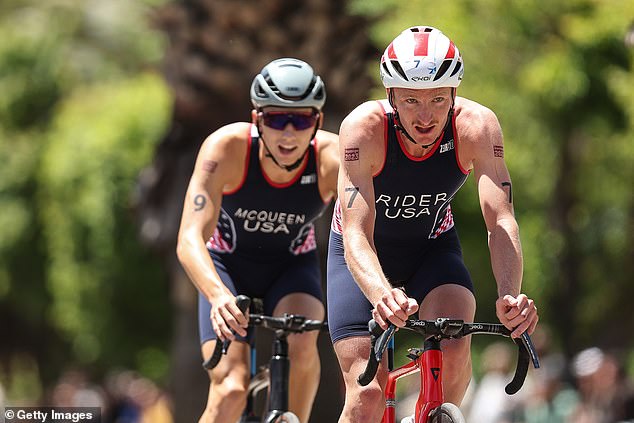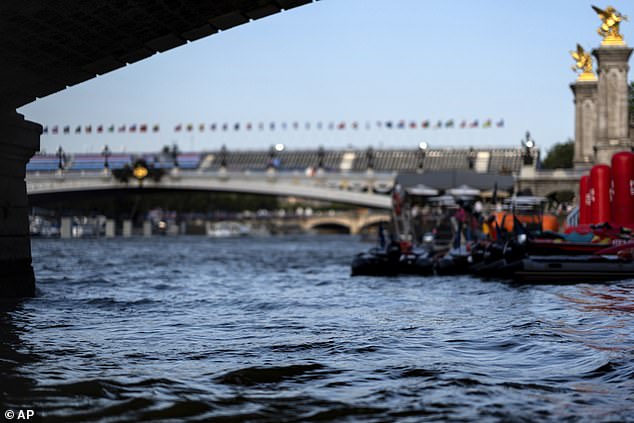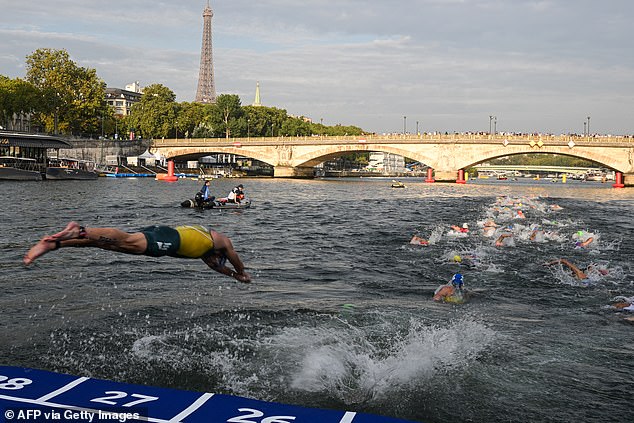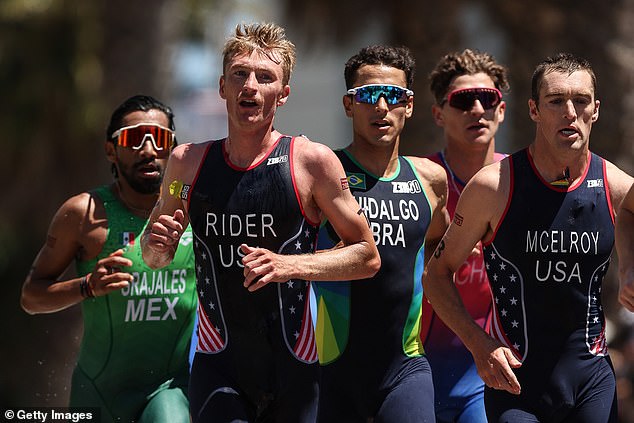- The men’s triathlon was scheduled to take place on Tuesday but was brought forward.
- More than £1bn was spent trying to improve the quality of the river before the Games.
- E. coli levels greater than 900 colony forming units per 100 ml are considered unsafe.
An Olympic triathlete has revealed he has taken extreme measures to try and adapt to the Games.
Much attention has been paid to the competition on the River Seine in France, as the opening ceremony took place on the river and there were major concerns about the cleanliness of the water.
On Tuesday, the men’s triathlon was postponed due to concerns, despite a massive clean-up effort being carried out to try to get it in better condition for the Games.
Triathletes’ swim training was cancelled on Sunday and Monday and the decision was made to move the men’s race from 8:00 a.m. local time on Tuesday to Wednesday at 10:45 a.m. The women’s race will remain as scheduled: Wednesday at 8:00 a.m.
Meanwhile, Seth Rider, who competes for the US team, has bizarrely revealed the lengths he has gone to in an attempt to prepare for the conditions he may face in competition.
An Olympic triathlete has revealed his bizarre training method used to help combat concerns about E. coli in the River Seine

Team USA’s Seth Rider (right) said he stopped washing his hands after using the bathroom in an attempt to adjust.

The men’s triathlon at the Olympic Games was postponed on Tuesday morning due to the water quality of the Seine.
“We know there will be some exposure to E. coli,” he said. “I just try to increase my threshold for exposure to E. coli by exposing myself to some E. coli in my daily life.
‘Just little things throughout the day, like not washing your hands after going to the bathroom and things like that.’
Rider is not among the favourites to medal in Paris, with Team GB’s Alex Yee backed to win individual gold for the first time thanks to his silver in Tokyo at the 2020 Games.
Meanwhile, a World Triathlon statement said Friday remains a contingency day if one or both races cannot go ahead.
The text reads: “Tests carried out today on the Seine have revealed that the water quality does not offer sufficient guarantees for the holding of the event. Despite the improvement in water quality, the values at certain points along the swimming course are still above acceptable limits.”
The problem is compounded by forecasts predicting rain and even a few thunderstorms between Tuesday night and Thursday. Rain typically increases bacteria levels in the Seine, where tests in June revealed dangerous levels of E. coli, a possible trace of fecal matter and disease-carrying germs.
According to World Triathlon Federation standards, E. coli levels above 900 colony-forming units per 100 milliliters are considered unsafe.
Organizers also had the option of eliminating the swim and turning the event into a duathlon.
Measures to clean up the water included creating a giant basin to capture rainwater and prevent wastewater from reaching the river. In addition, sewage infrastructure was renovated and wastewater treatment plants were modernized.
However, organisers knew that heavy rain in the days leading up to a competition could still cause levels of the harmful bacteria E. Coli to rise.

Training for the Olympic triathlon event in Paris has been cancelled in recent days.
There had been hope that the effects of the deluge that marred Friday’s opening ceremony would have passed with time, but that has not been the case.
“There are unfortunate weather events that are beyond our control,” said Aurélie Merle, sporting director of Paris 2024.
“But otherwise the project remains very solid. When we see the impact in quality and the legacy we can leave for Parisians as well, we are all very proud of what we have done so far.”
Bathing in the Seine, which runs through the city, has been prohibited since 1923.


